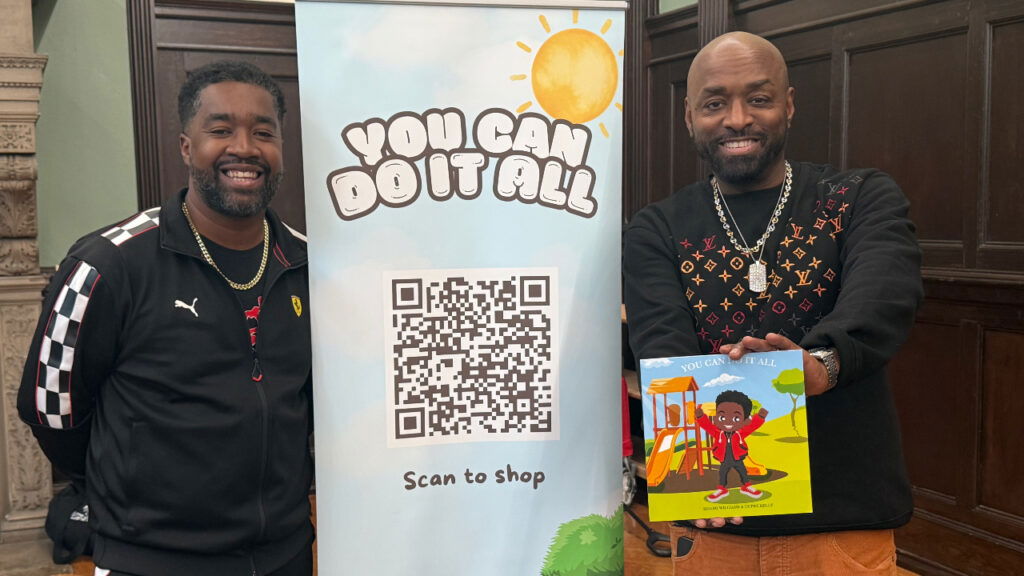You always hear people say that mistakes and failures are opportunities for growth. For Ricardo Jiménez, learning from failure has absolutely proven to be an opportunity, and on a grand scale. In fact, he’s written a book called Crash Course, that details the creation and collapse of his start-up business and, more importantly, what he learned from the experience.
The human side of building a start-up
The subtitle of his book, “A Founder’s Journey to Saving Your Startup and Sanity,” hints at what makes Jiménez’s take unique. He talks at length about self-awareness and the mental health component of being an entrepreneur. “I think we need to get deeper into the human side of the person building the startup,” he says.
Jiménez calls “understanding our inner states” a huge component in evaluating motives before launching a business. Other components include trusting yourself, following your instincts while leading and, crucially, knowing when to let go if necessary. “The more you understand where you’re coming from, the more you’re going to understand what’s happening to you and why you are leading or making the kind of decisions that you’re making,” Jiménez says.
“[As] humans, we like to think that we can do anything—we’re going to build companies, we’re going to build empires, we’re going to change the world. But the most likely scenario is that things will not work out as you thought, and that will create confusion, and you need to be ready to understand that that’s also part of the game.”
Quoting Apple Founder Steve Jobs’ famous 2005 Stanford commencement speech, Jiménez says that “we connect the dots looking backwards” on our lives. He connected the dots on his own journey to arrive where he is today: launching his first book about learning from failure and finding his “own path to freedom.” It’s a story “about the emotional journey,” in his words, and it’s one that holds lessons for others.
Launching the Plushky
Ricardo Jiménez and his best friend Juan Fernández, from back home in Zaragoza, Spain, first began planning a business around the concept of plush “toys in the shape of countries” in 2010. Their idea for the Plushky was that each toy would come with an individual personality and a sticker collectors could place in a passport. The broader goal was to awaken in children a curiosity about the world, so their startup grew to include educational materials, a book and even an augmented reality app.
In Crash Course, Jiménez describes jumping in headfirst with a combination of “passion and urgency” and with a steadfast conviction that their product would find its market—though they hadn’t yet spent significant time researching that market or confirming an audience demand.
This would prove to be the company’s downfall. As Jiménez writes in his book, “Entrepreneurs are also often advised to ‘find a problem, solve it for one person (ideally for themselves) and then solve it for many people.’ Plushkies did not do this. We did the opposite and began with something I thought was creative and then looked for a market. We were a solution looking for a problem.”
Learning from failure
Jiménez describes over several painful chapters the years of false starts, rejections and disappointments that came next, which far outweighed the flashes of success for Plushkies. “A dream—one that I had begun full of joy and hope—had turned into a never-ending struggle,” he writes. He found himself confused, depressed and running out of money.
Six years after launching, Plushkies finally folded. “I wanted to write a book about what I went through because I thought that by sharing my own struggles, I might become a source of inspiration and encouragement to entrepreneurs—especially if they ever felt stuck or stupid,” he writes. “My goal was that others might learn from my hurt and be more prepared, or at least aware.”
There’s so much more to life than a company
Not long after the stuffing went out of Plushkies, Ricardo Jiménez spent six months on a meditation retreat in Uruguay. He says that learning from failure gave him valuable lessons, “especially about emotions and about surrendering to life, about understanding that there’s so much more [to life] than [a] company.” He continues to make time for meditation retreats each year.
Some of these lessons make their way into the book, where he offers a great deal of advice, both business and personal. Ultimately, he recommends respecting and trusting yourself as a person, regardless of your success or failure: “You are not just a means to build a company. You are a deserving human being, whether you closed a big deal or raised capital or not.”
There’s a clear correlation between the country-shaped Plushkies and Jiménez’s own international background, lifestyle and worldview. Originally from Spain, Jiménez has lived in Indonesia, Miami and Austin, as well as other locales. Today, he says he tends to split his time between Puerto Rico, Spain and Asia. He travels frequently and has friends and business around the globe. “I feel very comfortable… operating at the level of the world,” he says.
Be optimistic and trust yourself
Jiménez describes feeling so certain that his Plushky business would succeed that he never contemplated the alternative. But the reality is that many new ventures don’t pan out. “You don’t start companies because you’re bored [or] because you don’t have anything better to do,” Jiménez says. “You need to put everything you have [into it]… so you need a lot of courage… and you need a lot of optimism.”
He adds that he “never had a marked path to success… so I kept trusting the inner impulse of what I wanted to do at [the] time. I think there is a lot of wisdom in that and in trusting your own path.”
Jiménez began investing in cryptocurrency as Plushkies was winding down, and it’s a new path that has afforded him the time and freedom he’d always dreamed of as an entrepreneur.
“I would encourage people to find their own way,” he says. “If they want what everybody else has, then all they need to do is what everybody else is doing. But if they want to… achieve, arrive or succeed in a different way,” then they need to look at how they can “feel more comfortable deviating from the norm.” That can mean “be[ing] very open [to] opportunities and risk.”
Photo by Frenzel/Shutterstock.com





